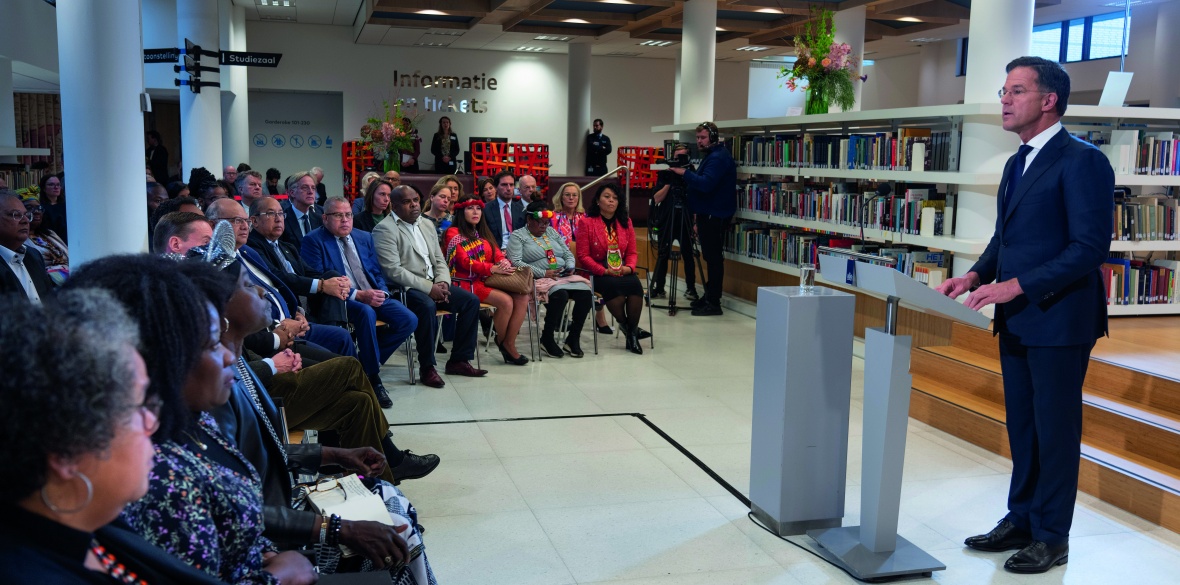This is the last article you can read this month
You can read more article this month
You can read more articles this month
Sorry your limit is up for this month
Reset on:
Please help support the Morning Star by subscribing here
DUTCH Prime Minister Mark Rutte offered a formal government apology today for his country’s historical role in slavery following a report on institutional racism in the Netherlands.
The statement came despite attempts by right-wing groups to delay the apology and a legal challenge last week that aimed to block the speech.
Speaking at the National Archive in The Hague, Mr Rutte said: “Today, I apologise.
“We know there is no one good moment for everybody, no right words for everybody, no right place for everybody [to make an apology].”
He said the government would establish a fund for initiatives that would help tackle the legacy of slavery in the Netherlands and its former colonies.
The Dutch government has previously expressed deep regret for the nation’s historical role in slavery but stopped short of issuing a formal apology, with the prime minister saying once that such a declaration could polarise society.
But a majority in parliament now support the apology, following growth of the global Black Lives Matter movement.
Last year, a report by a government-appointed advisory board recommended that the government make an apology and recognise that the practices of the slave trade from the 17th century until abolition “that happened directly or indirectly under Dutch authority were crimes against humanity.”
The report said that institutional racism in the Netherlands “cannot be seen separately from centuries of slavery and colonialism and the ideas that have arisen in this context.”
Earlier this month, an independent investigation found widespread racism in the Dutch Foreign Ministry and its diplomatic missions around the world.
Dutch ministers set out yesterday to discuss the issue in Suriname and other former colonies that made up the Kingdom of Netherlands.
In Suriname, a small South American nation where Dutch plantation owners generated huge profits through slavery, activists and officials have said that they have not been asked for input — which they say is a reflection of a Dutch colonial attitude.
The Surinamese government is asking for compensation.
The Dutch government has also announced that July 1 will be the start of slavery memorial year, in which the country will “pause to reflect on this painful history” and on how this history “still plays a negative role in the lives of many today.”











